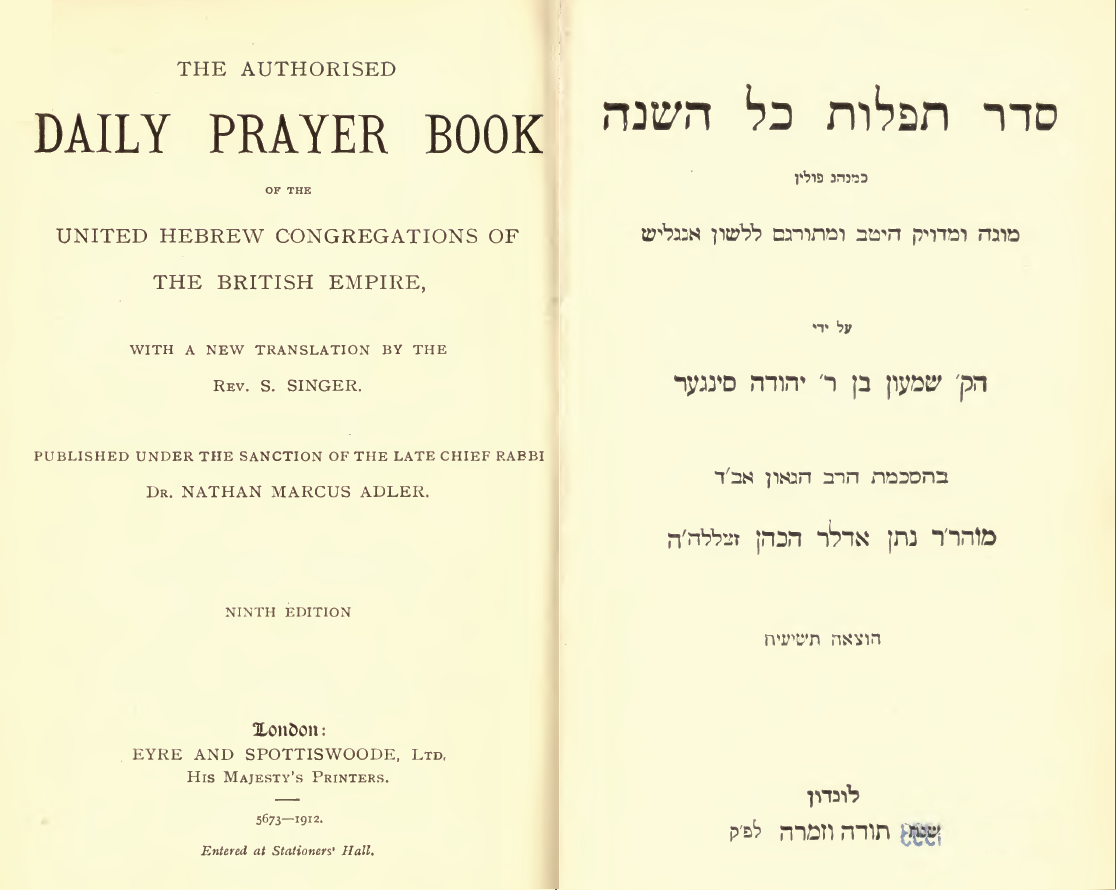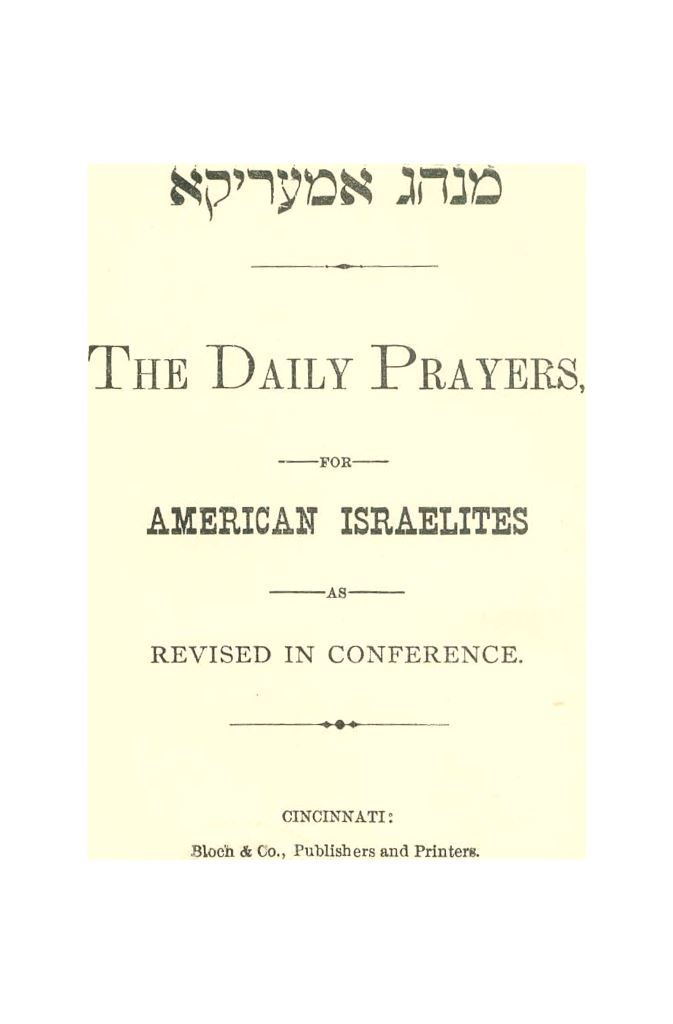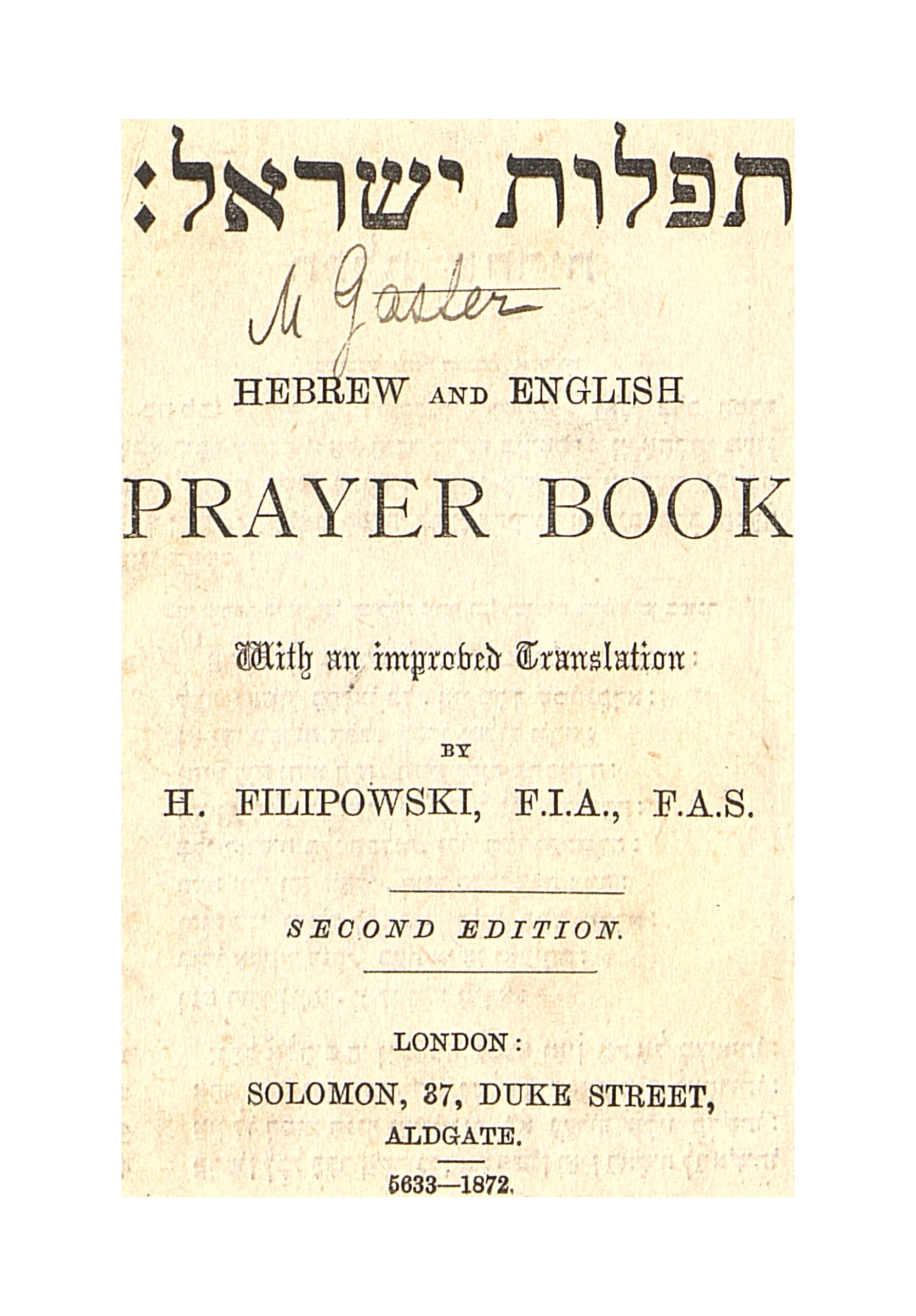This is Rabbi Emil Hirsch’s 1896 translation and adaption of Rabbi David Einhorn’s original German volumes of עלת תמיד Olath Tamid. (This edition followed after the first English translation that was published in 1872.) Besides his adapted translation, Hirsch also introduced a number of other changes which he summarized in his preface.

THE TRANSLATOR’S PREFACE.Einhorn’s “Olath Tamid,” published here in a new English translation, has won for itself a unique place among the many modern prayer-books, and regardless of the question of its further retention in the synagogues of our American congregations, it deserves to be made accessible to American Israel, and to be preserved in a form worthy of the German original. Its characteristic distinctions have often been recognized. It mirrors the great mind and man whose very soul — it is not too much to say — found incarnation in the pages of the book. Jewish to the core, deeply convinced of the glorious responsibility incumbent upon Israel for the rearing of the temple of humanity, Einhorn in his ritual has given us in truth, an epitome of the aspirations and beliefs of modern Judaism which, while conscious of the glories of its past, is at the same time keenly alive to its duty to the larger future of a united mankind. In bringing out this twofold, though fundamentally but one, ambition of modern Judaism, to be both Jewish and cosmopolitan, Einhorn’s Prayer-Book escaped the danger of lapsing into counterfeit Unitarianism and artificial emotionalism. It stands on the solid rock of Jewish thought and experience, and draws thence its power unexcelled to inspire.
This translation pretends to be nothing more than what the word implies. Inspection will show the departures from the original to have been few. The changes introduced were suggested by the desire to adapt the book more readily to its practical uses. For this reason, in Part II, the full text of the hymns has been added. The hymns are partly original by the translator, partly they are adaptations and translations from the German, made by him; a few have been taken from the translator’s scrap-book, and are from the pen of anonymous contributors to periodical literature. It will also be noticed that many of the Hebrew poems which in the German edition are rendered in rhymed prose, are here presented in a metrical form. For this, the translator, too, is responsible. He trusts that his attempts in this direction will not be found too much below the high plane of their surroundings. It may have been a hazardous venture on his part, to add a few prayers not found in the original. This was done in order to meet the demand expressed by some of the colleagues of varying occasionally the text of the prayers read. These additional prayers will be found to be recasts, largely, of thoughts expressed by Einhom, and to follow his own method of utilizing Biblical passages. The Week-Day Service, as here given, is also an enlargement of the formula contained in the German edition. In some of the congregations using Einhorn’s ritual, the Week-Day (Sunday) Service has become a permanent institution; and it was with a view of meeting this circumstance that the translator made bold to introduce what changes he has. The order of “Taking out the Scroll” differs also from that in the German. The reasons whicli prompted this revision are plain. To make the choral features a more prominent part seemed desirable. The responses assigned to the choir, have been, as far as possible, rendered in the rhythm of the German original so that the music written for the German text can be used also for the English.
We know that there will always be a few congregations that will continue to love their Einhorn; for many decades they have by this book been led to the fount of true edification. They know no reason why they should now exchange their old and well-tried friend for a new-comer that, at its best, can only give what the old possesses so abundantly. For them, also, this new English translation was made. To them, it is dedicated. The translator will be amply rewarded for his labors if in the new language, the Prayer-Book will win its way into the heart of all — who have learned to love it in its original tongue. To the memory of its sainted author be it inscribed in its new English guise.
Emil G. Hirsch
Chicago, III, August 3, 1896

“📖 עלת תמיד (רפורמי) | Dr. David Einhorn’s Olath Tamid: Book of Prayers for Jewish Congregations, translated and adapted by Rabbi Emil G. Hirsch (1896)” is shared through the Open Siddur Project with a Creative Commons Public Domain Dedication 1.0 Universal license.










Leave a Reply